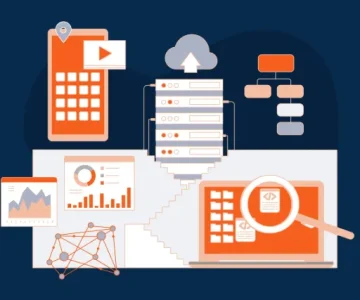In today’s marketing world, information moves faster than ever. Companies are tapping into the:** Big Data in Marketing: Turning Insights into Strategy
In today’s marketing world, information moves faster than ever. Companies are tapping into the enormous potential of big data to sharpen their competitive edge, uncover fresh opportunities, and connect with audiences in more meaningful ways. Far from being just a buzzword, big data has become an essential tool for understanding customers, predicting trends, and crafting strategies that deliver results.
Understanding Big Data in Marketing
Big data refers to the vast volumes of both structured and unstructured information that businesses collect daily. In a marketing context, this could include customer purchase histories, website interactions, social media activity, market trends, and even competitor performance. The real value lies in transforming this mass of raw information into insights that guide decision-making and inspire more effective campaigns.
By using advanced analytics, marketers can move past guesswork. Instead of relying solely on intuition, they can base their strategies on patterns, correlations, and emerging trends identified from large datasets. This allows for more accurate targeting, better timing, and a deeper understanding of audience behavior.
Key Applications of Big Data in Marketing
- Customer Segmentation
Detailed segmentation becomes much more precise when powered by big data. Businesses can break down their audience into clearly defined groups based on demographics, interests, purchase habits, and online activity, ensuring marketing messages reach the right people at the right time. - Personalized Campaigns
Consumers increasingly expect experiences tailored to their needs. Big data makes it possible to deliver personalized product recommendations, customized offers, and targeted communications that feel relevant and timely. - Predictive Analytics
By examining historical trends, marketers can anticipate what customers might want next. Predictive analytics helps brands prepare for changes in demand, launch timely campaigns, and address customer needs before they arise. - Real-Time Engagement
Access to live data allows marketers to adapt instantly to changing market conditions or consumer responses. This agility can help campaigns remain relevant and capitalize on trending topics or events. - Social Media Insights
The vast amount of information generated on social platforms is a goldmine for marketers. Big data analytics can track brand mentions, gauge audience sentiment, and reveal which types of content spark the most engagement.
Benefits of Using Big Data in Marketing
- Deeper Customer Understanding – Gain a detailed view of customer preferences, habits, and pain points.
- Smarter Decision-Making – Make informed choices backed by evidence, not assumptions.
- Higher ROI – Identify the channels and tactics that deliver the greatest return and focus resources accordingly.
- Improved Customer Experience – Anticipate needs and deliver personalized interactions that build loyalty.
- Stronger Competitive Position – Stay ahead by recognizing shifts in the market before competitors do.
Making Big Data Work for Your Marketing Strategy
- Set Clear Objectives – Know exactly what you want to achieve, whether it’s increasing sales, boosting retention, or improving engagement.
- Select the Right Tools – Use analytics platforms capable of handling your data’s size and complexity while aligning with your business goals.
- Focus on Data Quality – Ensure your information is accurate, consistent, and up to date to avoid flawed conclusions.
- Invest in Expertise – Skilled analysts and data scientists are essential to turn raw numbers into meaningful actions.
- Prioritize Privacy and Security – Safeguard customer data to comply with regulations and maintain trust.
The Future of Big Data in Marketing
As technology advances, the role of big data will only grow. Automation, improved algorithms, and integration with artificial intelligence will enhance marketers’ ability to predict outcomes, personalize experiences, and respond to market changes with precision. Machine learning will further refine analytics, enabling faster and more accurate decisions while reducing manual effort.
Looking ahead, the combination of big data and AI promises to push marketing into a new era—one where campaigns are not only targeted but predictive, adaptive, and deeply personalized. Businesses that embrace these capabilities now will be best positioned to lead in an increasingly data-driven marketplace.





